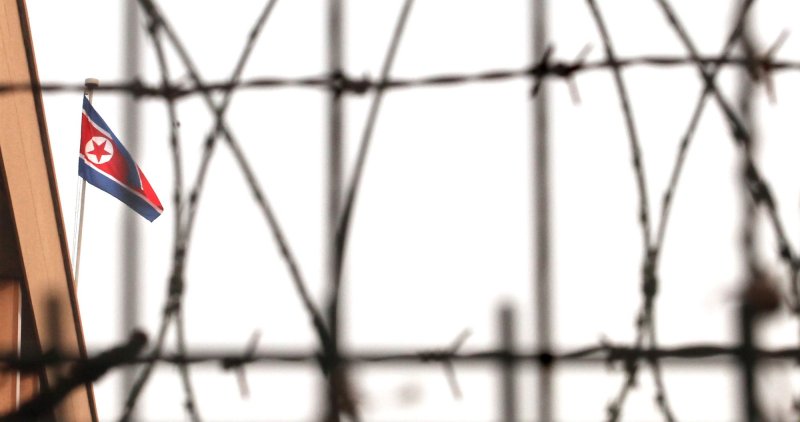The North Korean national flag flies over its embassy in Beijing November 29, 2010. Any North Koreans in Libya have reportedly been forbidden from returning home by Kim Jung Il's regime. UPI/Stephen Shaver |
License Photo
SEOUL, Oct. 31 (UPI) -- North Korean President Kim Jong Il has banned North Koreans in Libya from returning home, media reports said.
The ban reflects Kim's concern word of Arab uprisings could foment social unrest in North Korea, South Korean media have reported, the Los Angeles Times said.
About 200 North Koreans are in Libya, including doctors, nurses and construction workers sent there to bring hard currency back to their poverty-stricken country, where food shortages have been reported as winter approaches.
Kim had close ties with Moammar Gadhafi before the late Libyan leader's regime collapsed.
North Korea refuses to recognize Libya's National Transitional Council as the nation's governing body and has reportedly remained silent about Gadhafi's death.
South Korea's Yonhap News Agency reports North Korea also has banned the return of its officials in two other countries that have had anti-government uprisings, Tunisia and Egypt, the Times said.
It remained unclear whether defectors from North Korea planned to send news of the Arab Spring rebellions into the North from South Korea via helium balloons.
An editorial published recently in the Seoul-based Korean Herald newspaper estimated less than 1 percent of North Koreans are aware of the uprisings and said all of them are top party and administration officials with satellite TV access or among those allowed to travel to China on business.
"Pyongyang's silence about the fall of the dictators in Tunisia and Egypt and the bloody death of Gadhafi reveals Kim Jong Il's awareness of the vulnerability of his regime in the process of a third-generation dynastic succession of power," the editorial said.
"Despite their boasting of the perfect loyalty of the 23 million people to the party and its leader, the ruling elite are afraid of what effect the information on the fates of overseas dictatorships will have on the oppressed people of the country."















